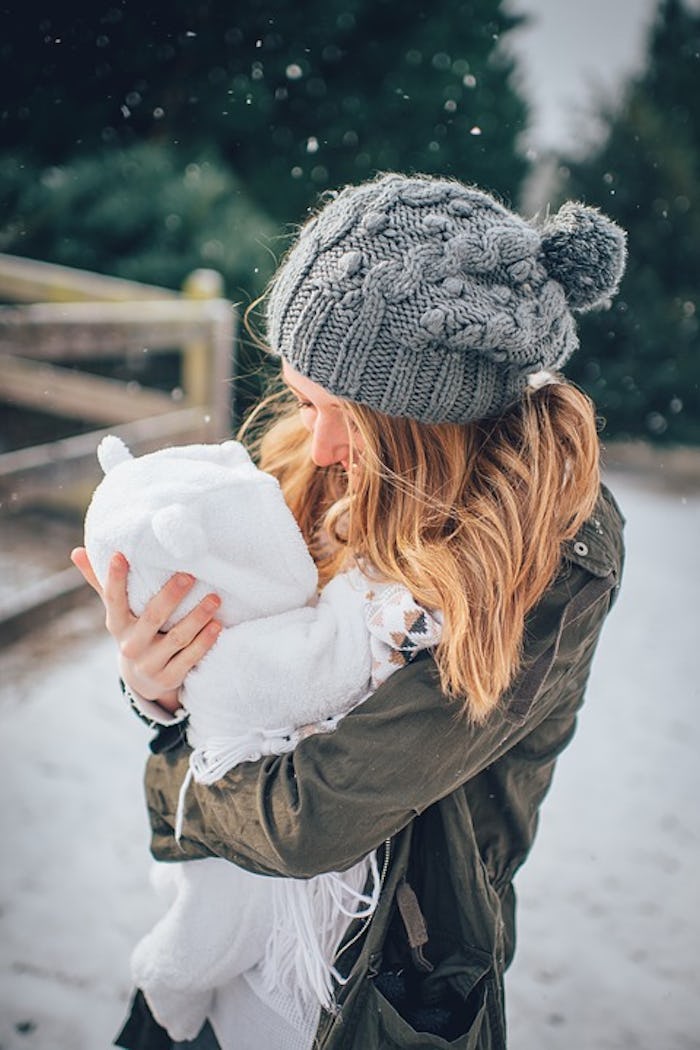Having a baby is a wild, wonderful experience, but it's especially fun during the winter. You and your wee one will have plenty of opportunity to snuggle up as it snows outside, and honestly, it's actually even better than snuggling up with your grown-up partner. But still, winter does have its downside. Like the cold and the snow and the eating of good cheeses without exercising, some could consider that a negative. Also, the cold weather in winter carries a few increased risks for babies that parents and caregivers might want to watch out for in between snuggles and naps. I almost forgot to mention the excellent naps in winter.
Along with the snow and the short days, winter brings along a whole host of surprising health and safety risks for babies that can make new parents feel incredibly anxious. First of all, viruses and bacterial infections are on the rise with the colder months, and of course the dreaded seasonal flu will soon be upon us. While most of these issues pose nothing more than a minor inconvenience for healthy adults, little babies with new immune systems can be quite fragile in comparison. Here are a few cold weather risks to watch out for with your baby this winter.
SIDS
According to the National Institute for Health, babies are at an increased risk of SIDS (Sudden Infant Death Syndrome) in the winter months. One way to reduce the risk of SIDS is to make sure you are not over bundling your baby; parents and caregivers often want to layer extra clothes and blankets in the winter to make sure babies are warm enough, but this adds to the increased risk of SIDS. The NIH reports that studies have shown these extra layers of clothing and blankets, as well as keeping the room temperature too warm, could contribute to SIDS. Dr. Alan E. Guttmacher, director of the NIH’s Eunice Kennedy Shriver National Institute of Child Health and Human Development (NICHD), said:
Parents and caregivers should dress infants in light clothing for sleep and keep rooms at a temperature comfortable for adults. They should also know that the single most effective way to reduce the risk of SIDS is to always place infants to sleep on their backs, for naps and at night.
Winter Illness
Winter can be a difficult time for viral infections, and protecting your baby from other people's colds can feel like a full time job. But asking people to sanitize their hands before handling your baby, avoiding places where there could be lots of middle-school children carrying germs (particularly if your baby is under 3 months), should help reduce the risk of contracting an infection.
Dry, Itchy Skin
According to Dr. Seth Orlow, chairman of the Ronald O. Perelman Department of Dermatology at the New York University School of Medicine in New York City, approximately 10 percent of babies suffer from red, itchy skin known as eczema. And naturally, central heating creates dry air that could exacerbate that dry skin. Parents.com recommends limiting bath time to under 10 minutes in lukewarm water with hypoallergenic cleanser rather than soap. Pat your baby dry with a towel and then consider covering her in a hypoallergenic lotion to soothe her skin.
With a few precautions, winter can be a wonderful time to hunker down and bond with your baby. Think of it as hibernating except with Netflix.
